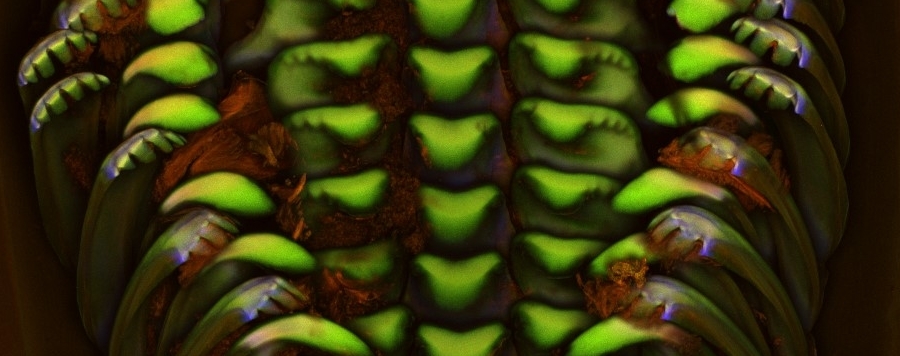
Linking molluscs with their food: the diversity of material compositions in radulae
The molluscan phylum can be considered successful, since they inhabit almost all environments. The colonization of these ecosystems is enabled by the evolution of a key innovation for mechanical food gathering and processing, the radula. This structure is composed of a chitinous membrane with longitudinal and transversal rows of embedded teeth. It is highly diverse in morphology, material composition and with regard to its mechanical properties. All of these parameters influence the structures’ resistance to failure and wear, and thus relate to the preferred food. Additionally, they determine the function of each individual tooth, enabling some teeth to loosen the food from the surface whereas others rather collect the particles in a complex motion afterwards.
Multiple mechanisms, e.g. the composition of elements, or the degree of tanning, determine the radular performance. Depending on the species, these mechanisms contribute to different extents to both wear- and failure-reduction. This highlights the potential of evolving convergent solutions to common biomechanical constrains at the food processing apparatus.





